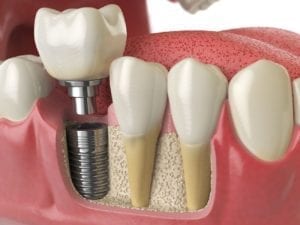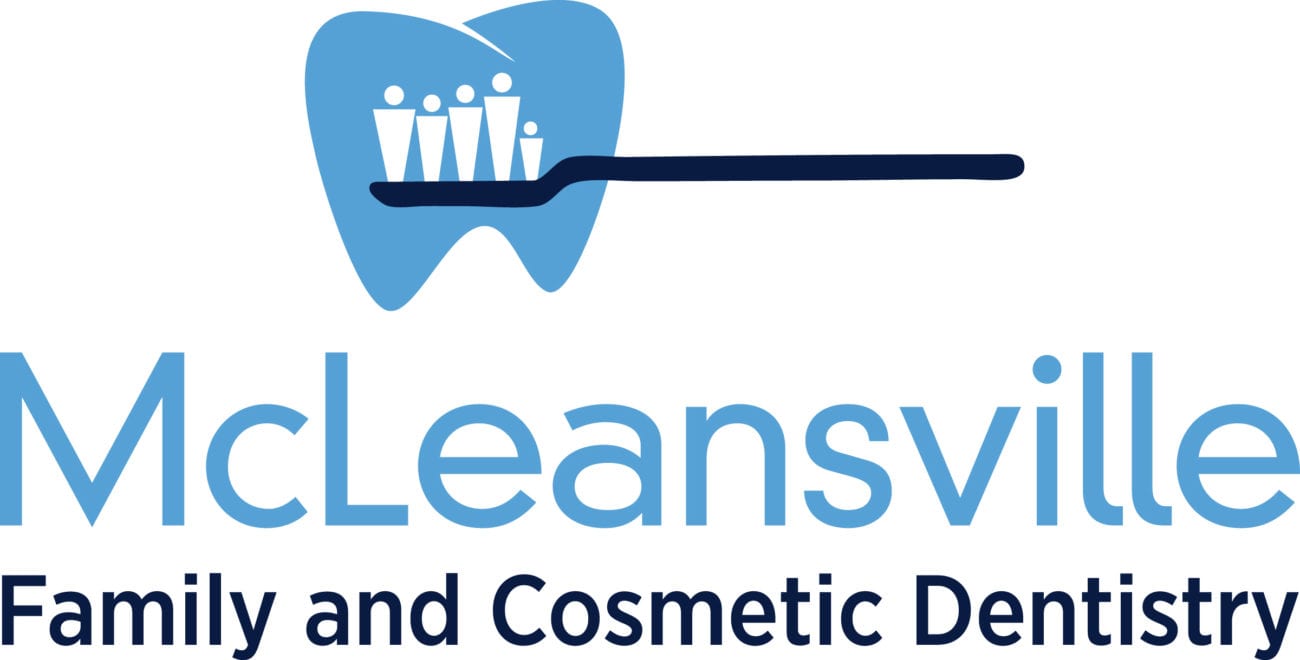Dentures and dental implants are both popular ways to replace missing teeth. But how do you know which one is the better choice? Dr. Quinn Woodruff of McLeansville Family and Cosmetic Dentistry discusses both the positives and negatives of McLeansville, NC dental implants and dentures.
What to Know About Dentures
Removable dentures are usually thought of as a way to replace a full arch of missing teeth, but partial dentures are also available. They’re made up of a metal and resin base that supports plastic or ceramic teeth. Some of the perks of dentures are that they’re cheaper to get upfront and you can get your restoration quicker, as there’s no surgical element.
However, dentures do come with a lot of downsides. While you don’t pay as much upfront, you’ll likely incur more costs down the road. When you lose a tooth, the jawbone starts to deteriorate in that area. Because dentures don’t replace the tooth root, your jawbone deterioration will continue. This will change the fit of the denture, and it comes to a point where it needs to be readjusted or replaced to continue to be usable.
Dentures also give you back only 30-40% of your bite function. They require adhesive to stay in the mouth. Because of this, you run the risk of the restoration slipping or falling out when you’re eating or speaking. You’ll have to change your diet because there are certain foods dentures can’t handle. With the adhesive, you’ll also have to remove the denture and make sure it’s cleaned thoroughly every night.
The Benefits of Dental Implants
Dental implants are often considered the gold standard of tooth replacement. They’re made up of three separate parts. First, a titanium implant post is placed in the jawbone. Next, a piece called an abutment is attached to connect the post to the final restoration. While the final restoration is commonly a dental crown, implants can also support a fixed bridge or denture.
One of the issues people have with dental implants is that they cost more upfront. But you won’t incur costs down the line with implants. They’re the only replacement option that replaces the tooth root as well. This stops the jawbone from deteriorating further and can sometimes help to reverse the deterioration that’s already occurred.
Implants do take longer for the restoration to be completed. When the posts are placed, they require 3-6 months to heal before proceeding further. However, this gives the implants the stability they’re known for. They fuse with the jawbone and give you back 100% of your bite function. You don’t have to worry about them slipping or falling out.
Even with advancements in dental technology, dentures are still bulky and require a learning curve to get used to. But implants — especially when the final restoration is a dental crown — both look and feel extremely natural. They don’t require extra maintenance, either. You can just brush, floss, and visit the dentist regularly.
Getting Dental Implants in McLeansville, North Carolina
Do dental implants sound like the solution for you? Call us or schedule an appointment online.
